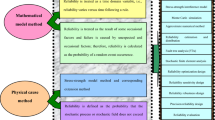Abstract
Functional quality in the mechanical products is governed mainly by the degree of satisfaction of the design requirements, which itself depends on the variations in the effective variables. The functional parameters cannot be easily measured in mass production, and thus, are not usually considered as a direct inspection objective. Process capability indices are useful tools for evaluating the ability of a process to produce the dependent variables of a product that meet certain specifications. In this paper, the conventional process capability concept is extended to develop a computational tool for analysis of the functional quality of a mechanical product. Through defining new proper indices called functional process capability indices (FPCp, FPCpk, FPCpm, and FPCpmk), a statistics-based process capability analysis method is used to estimate the ability of a manufacturing process for meeting the functional requirements of a mechanical system. Using this approach for statistical design of a mechanical product, the effects of variations in manufacturer’s dimensions on the functional requirements of a product can be evaluated. A parameter is introduced which quantifies the contribution of variables that reduce the functional process capability. The applications of the proposed method are demonstrated through implementing it on two case studies and the results are discussed.
Similar content being viewed by others
References
Kane VE (1986) Process capability indices. J Qual Technol 18(1):41–52
Taguchi G (1985) A tutorial on quality control and assurance-the Taguchi methods. ASA Annual Meeting, Las Vegas, Nevada
Chan LK, Cheng SW, Spiring FA (1988) A new measure of process capability: C pm. J Qual Technol 20(3):162–175
Pearn WL, Kotz S, Johnson NL (1992) Distributional and inferential properties of process capability indices. J Qual Technol 24(4):216–231
Adragna PA, Pillet M, Formosa F, Samper S (2006) Inertial tolerancing and capability indices in an assembly production. Revue Internationaled’IngenierieNumerique 2(1–2):71–88
Kaya I, Kahraman C (2010) Development of fuzzy process accuracy index for decision making problems. Inf Sci 180:861–872
Mannar K, Geglarek D (2010) Functional capability space and optimum process adjustments for manufacturing processes with in-specs failure. IIE Trans 42:95–106
Delaney KD, Phelan P (2009) Design improvement using process capability data. J Mater Process Technol 209:619–624
Khodaygan S., Movahhedy M.R (2011) “Statistical-based Process Capability Analysis for Fit Quality Prediction of Mechanical Assemblies with Asymmetric Tolerance”, SAE Technical Paper 2011-01-0466
Khodaygan S, Movahhedy MR (2012) Fuzzy-based analysis of process capability for assembly quality assessment in mechanical assemblies. Int J Prod Res 50(12):3395–34152012
Zhang Y, Yang M (2009) A coordinate SPC model for assuring designated fit quality via quality-oriented statistical tolerancing. Comput Ind Eng 57:73–79
Pearn WL, Kotz S (2006) “Encyclopaedia and handbook of process capability indices: Comprehensive exposition of Quality Control Measures”, series in quality, reliability & engineering statistic, vol 12. World Scientific, USA
Wu C, Pearn WL, Kotz S (2009) An overview of theory and practice on process capability indices for quality assurance. Int J Prod Econ 117:338–359
Moore RE, Kearfott RB, Cloud MJ (2009) Introduction to interval analysis. Siam, Philadelphia
Greenwood WH, Chase KW (1990) Root sum squares tolerance analysis with nonlinear problems. J Eng Ind Trans ASME 112(4):382–384
Movahhedy MR, Khodaygan S (2007) “Tolerance analysis of mechanical assemblies with asymmetric tolerances”, SAE 2007 Transactions. J Mater Manuf 116:44–52
Khodaygan S, Movahhedy MR (2010) Tolerance analysis of assemblies with asymmetric tolerances by unified uncertainty—accumulation model based on fuzzy logic. Int J Adv Manuf Technol 53(5–8):777–788
Bryan A., Camelio J., Hu S.J (2007) “Error analysis of a nanomechanical drill”, Selected Conference Papers from the 9th CIRP International Seminar on Computer-Aided Tolerancing in “Models for Computer Aided Tolerancing in Design and Manufacturing”, Edited by Davidson J. K., Springer
Uicker J, Pennock G, Shigley J (2010) Theory of machines and mechanisms, 4th edn. Oxford University Press, USA
Author information
Authors and Affiliations
Corresponding author
Rights and permissions
About this article
Cite this article
Khodaygan, S., Movahhedy, M.R. Functional process capability analysis in mechanical systems. Int J Adv Manuf Technol 73, 899–912 (2014). https://doi.org/10.1007/s00170-014-5800-0
Received:
Accepted:
Published:
Issue Date:
DOI: https://doi.org/10.1007/s00170-014-5800-0




